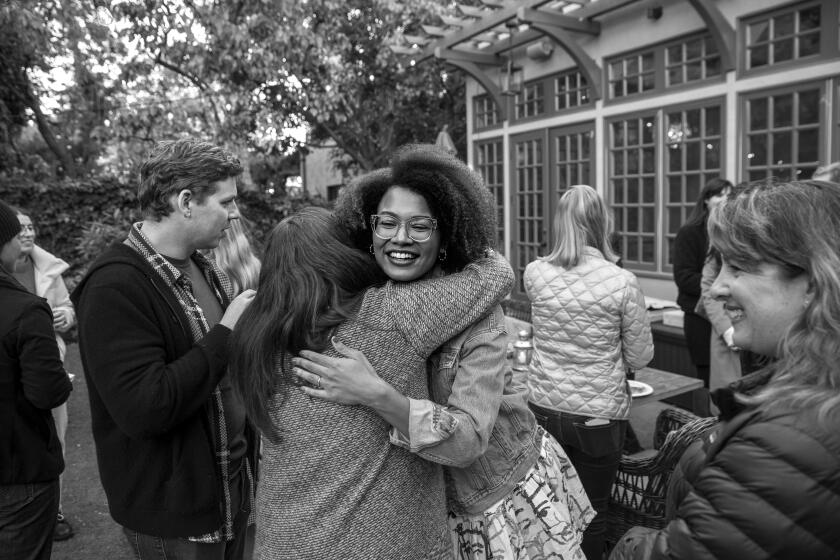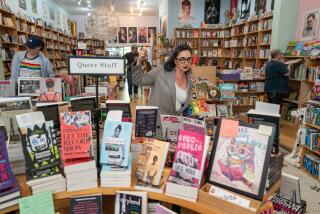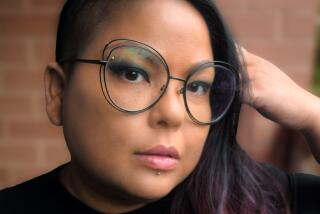Review: This tender, original queer YA novel will likely be banned. That’s not why you should read it

On the Shelf
'Beating Heart Baby'
By Lio Min
Flatiron: 352 pages, $19
If you buy books linked on our site, The Times may earn a commission from Bookshop.org, whose fees support independent bookstores.
The worst thing about music is that other people get to hear it. This line — originally uttered by the singer Mitski at a concert in 2019 — recurs like a refrain throughout Lio Min’s debut young adult novel, “Beating Heart Baby.” In the world of the book, it’s attributed to a fictional anime show, “Mugen Glider,” which functions as a touchstone for a pair of teenage boys named Santi and Suwa.
Both are lonely middle schoolers when they encounter each other via an online message board, and the show is what brings them together. They immediately recognize kindred spirits, but it’s only as the relationship deepens that they start to share any concrete details about who and where they are. This is a very particular kind of relationship, one largely only possible in the 21st century, which has made disembodied intimacy not only possible but common. “So much of our friendship is about not being able to imagine the other person at all, filling in these details without ever drawing borders,” as Santi observes at one point.
The expansiveness and freedom of partial anonymity are particularly crucial because both boys have the kinds of identities that can be made to feel like a straitjacket. Santi is queer, Suwa trans; both are mixed-race, with complicated relationships with their relatives across those divides. Being known as a person first — an artist, an obsessive, a mind, a voice — allows each of them to be exactly who he is when they’re talking. They fall sideways into love.
Not that either of them would call it that, exactly. And before they can meet up in person, Santi accidentally leaks a song that Suwa, a budding musician, has sent him, effectively ending their friendship. Cut to black.
Nina LaCour’s first novel for adults, “Yerba Buena,” follows a promising and complicated lesbian love story in the mold of Sarah Waters.
The book begins a handful of years later, when Santi moves to Los Angeles for his senior year of high school and joins the marching band, where Suwa is a section leader. The boys knew each other by pseudonyms and never traded photos or videos, so they have no way of recognizing each other, but the chemistry between them is as electric offline as it was online. From there, it’s only a matter of time until they unravel who they are to each other — who they’ve always been.
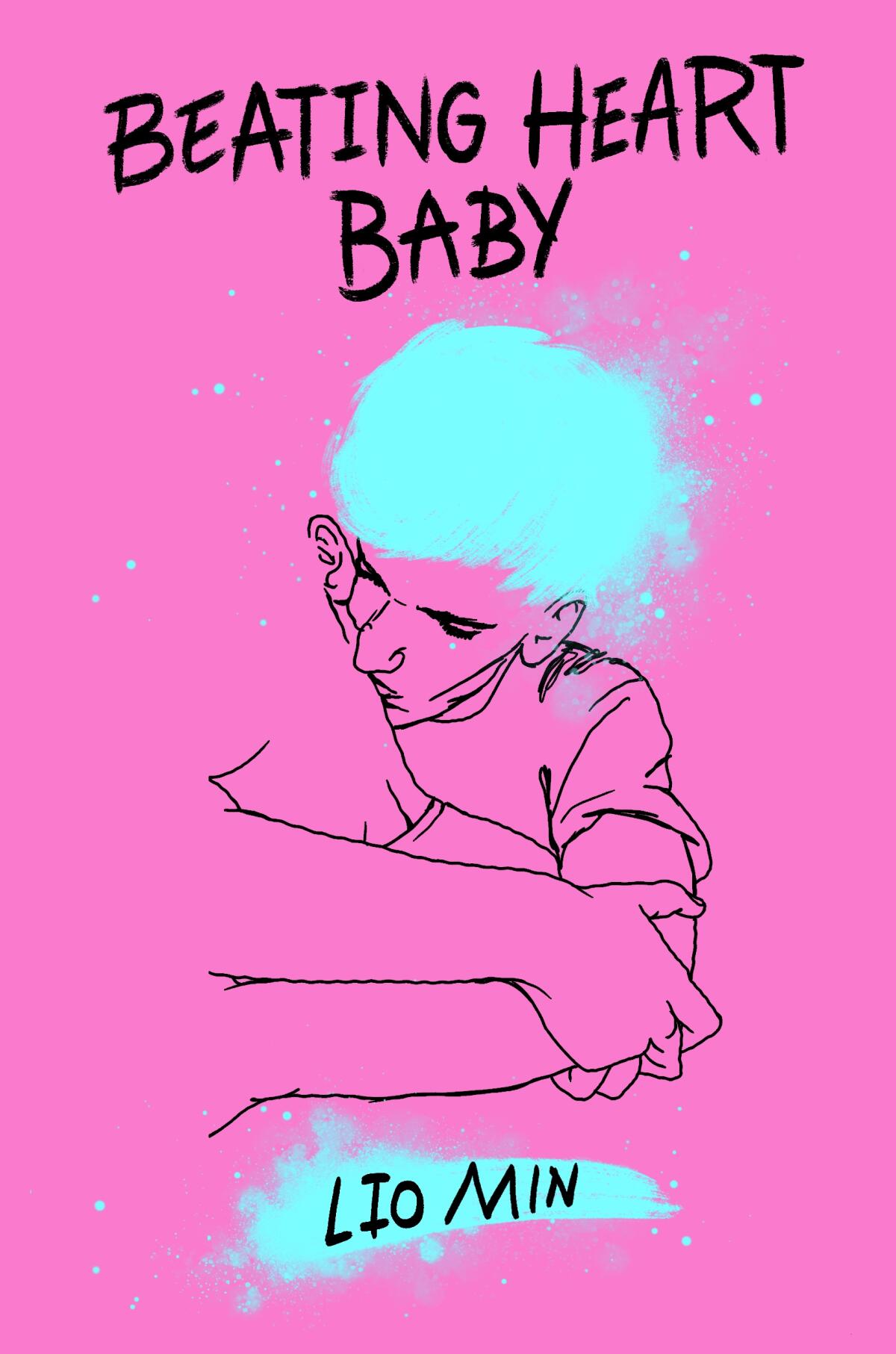
“Beating Heart Baby” is thoroughly, consistently lush, but never more so than when it’s lingering on the heat between Santi and Suwa. Its tender evocations of the way a crush can turn someone else’s body into flint and tinder, an object of almost holy reverence, sing like a choir every time.
Early in the novel, Santi is sitting at a skate park watching Suwa ride when Suwa comes over and sits down next to him. “Suddenly, Suwa,” Min writes. “Skateboard tucked under his arm. His other arm brushes against mine as he tries to sit in the only free space. A holographic bandage trying but failing to cover a nasty scrape on his shin catches the light, and I’m sunstruck.” He notes that Suwa is wearing a jacket Santi loaned him, and says, “I’ve never felt more at the mercy of God’s plan.”
This book is alive with ache, grief, hunger, love, pain and awe. It expands beyond the traditional structure of a YA novel, which traces an arc of self-realization and typically focuses on a single character’s coming of age. Instead of climaxing at graduation, “Beating Heart Baby” takes the end of high school as its midpoint, and in the second half of the book, Santi’s narration gives way to Suwa’s. From there, we watch as Suwa struggles with Santi’s betrayals, as well as the conflict between his artistic ambition and his fear of success and the spotlight — particularly what they could mean for a boy like him.
In the Larchmont backyard of author Stuart Gibbs, 30-odd writers of young people’s literature toasted a thriving scene — and left their kids at home.
Late in the book, Suwa talks to a journalist who is delicately — but definitely — trying to prompt him to come out as trans. “No one should have to justify their art with their suffering,” he tells her. It feels unfair to what “Beating Heart Baby” accomplishes to reduce it to a question of identity — Min’s or their characters’. But it is also true that because of the characters’ queerness, this book will likely be challenged and banned in libraries across America, preventing some portion of its target audience — teenagers — from reading it. That’s a shame for queer kids, and particularly brown queer kids, like Santi and Suwa, who need to see themselves represented on the page. But it’s also a shame simply because the book is good. It should be read for the reasons all good books should be read: because it’s beautiful and moving, nuanced and humane. Most of all, because it’s fun.
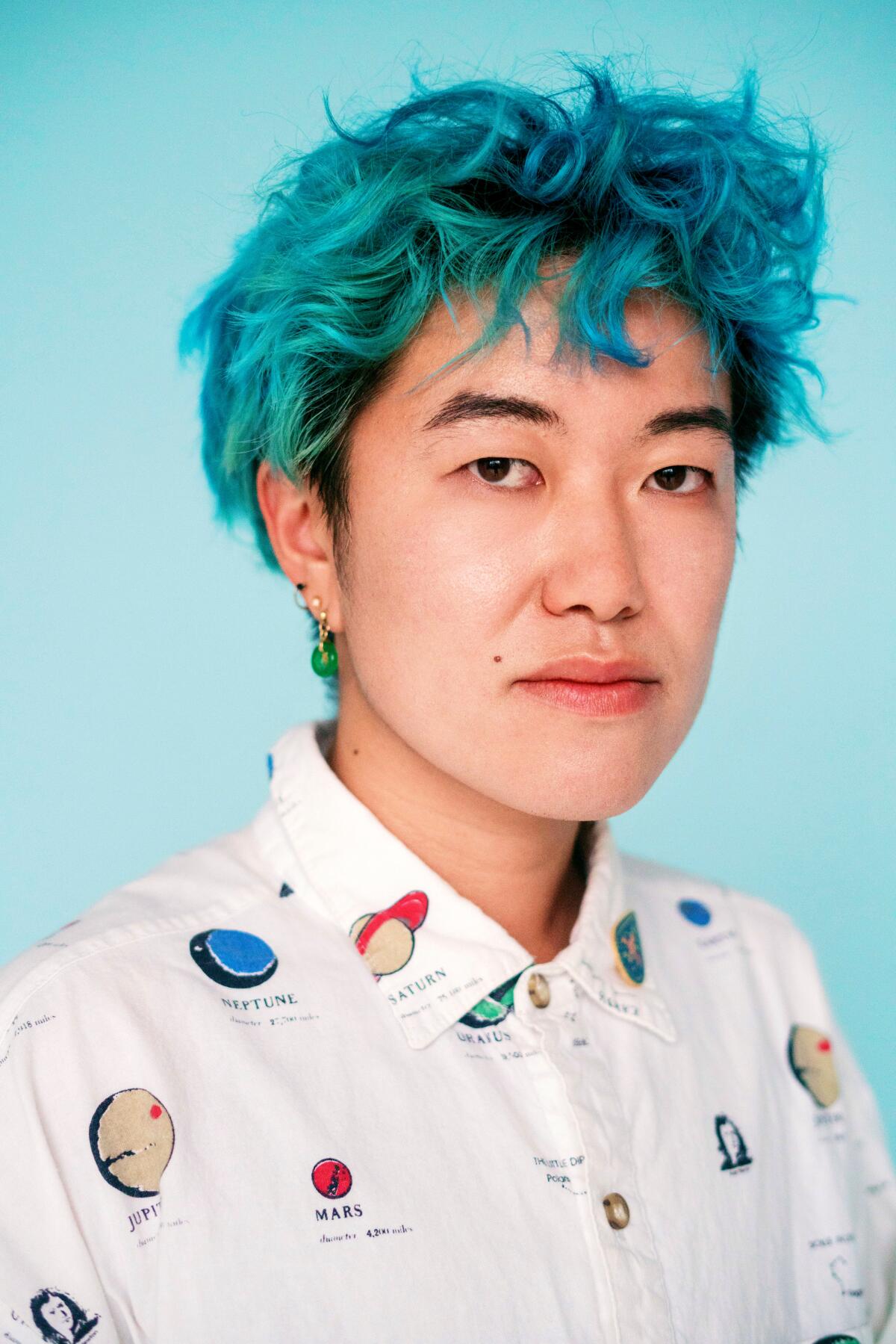
The worst thing about music is that other people get to hear it. “Beating Heart Baby” asks all kinds of questions, but among the most important: How can a person possibly make something — pull out their own heart and guts, their worst and best parts — and let the world witness them? And how can we, their audience, bear to recognize ourselves in their work — let alone know that there are other people who feel that shock of recognition just as sharply as they do? How can we stand the intimacy and vulnerability of love and art, which hurt us just as much as they heal us?
The book has its flaws, of course. Suwa’s section isn’t as narratively propulsive as Santi’s; the coda, which gives us a flash-forward peek into the future, feels a bit like gilding the lily. But even these imperfections read more like a feature than a bug. The novel is not tied to the familiar structure prescribed by how-to guides like “Save the Cat!,” packaged for adaptation into television, where a commercial break will punctuate each beat. Instead, it’s as messy and enthralling as its heroes and their first and lasting love. “Beating Heart Baby” is a series of collisions between the competing imperatives of private revelation and public communion; it’s a heartbreaking chronicle of the agonizing, impossible process of becoming and revealing yourself.
Part of the joy of reading is the way it can disturb us.
Romanoff is a writer and the author of several novels for young adults.
More to Read
Sign up for our Book Club newsletter
Get the latest news, events and more from the Los Angeles Times Book Club, and help us get L.A. reading and talking.
You may occasionally receive promotional content from the Los Angeles Times.

